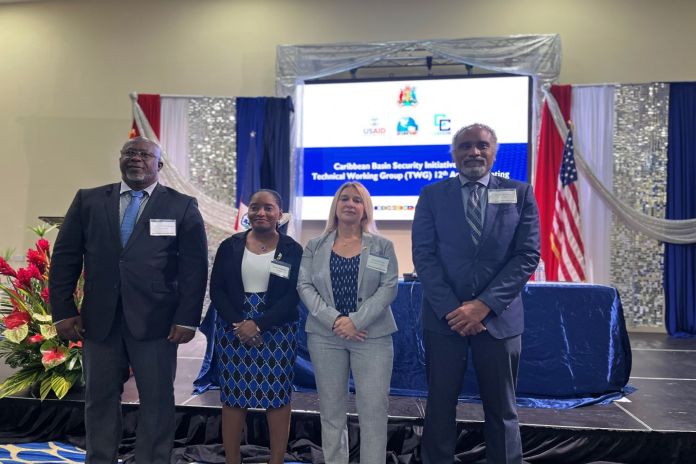By Caribbean News Global contributor
BRIDGETOWN, Barbados – From January 10-12, 2024, the United States government, through the United States Agency for International Development (USAID), and in collaboration with the government of Grenada and the CARICOM Secretariat, will host a Technical Working Group (TWG) meeting in Saint George, Grenada to share best practices on addressing youth crime and violence in the Caribbean.
The theme of the Caribbean Basin Security Initiative (CBSI) technical working group conference, “Adaptive Management in Citizen Security,” underscores the importance of staying nimble and adapting to new information in a changing context.
At the opening ceremony, US Embassy Grenada principal officer Frances Herrera stressed the importance of collaboration, stating: “Consequently, our partnerships with CARICOM and national governments are indispensable. By working hand in hand, we can influence policy frameworks that prioritize crime prevention and youth development.”
USAID Eastern and Southern Caribbean regional representative Mervyn Farroe emphasized that the US government has for many years partnered with regional governments to prevent youth crime and violence by providing youth with positive opportunities and building more effective, transparent justice systems.

Launched in 2010, the Caribbean Basin Security Initiative (CBSI) is a US security cooperation partnership with thirteen Caribbean countries. Since 2010, the United States has worked with Caribbean governments through the Caribbean Basin Security Initiative, (CBSI) to reduce illicit trafficking, increase citizen security, and address the root causes of crime and violence in the Dominican Republic, Jamaica, Barbados, The Bahamas, Antigua and Barbuda, Dominica, Grenada, St Kitts and Nevis, Saint Lucia, St Vincent and the Grenadines, Guyana, Suriname, and Trinidad and Tobago.
CBSI advances common security objectives in the Caribbean, focusing on transnational criminal organizations involved in drug-related crimes, systemic violence, corruption, weak judicial systems, and at-risk youth.
CBSI programs are organized along three overarching pillars: reduce illicit trafficking, increase citizen security, and prevent youth crime and violence.
To date, the United States has committed nearly $905 million in equipment, training, and technical assistance to the Caribbean region through CBSI.
Through CBSI, the United States works to build Caribbean partners’ capacity to disrupt illicit trafficking and transnational crime, advancing Caribbean and US citizen security. CBSI programs are managed by USAID, the State Department’s Bureau of Narcotics and Law Enforcement Affairs (INL), and the State Department’s Bureau of Political-Military Affairs (PM), in coordination with the State Department’s Bureau of Western Hemisphere Affairs, which supports policy and programmatic coordination with Caribbean counterparts.





